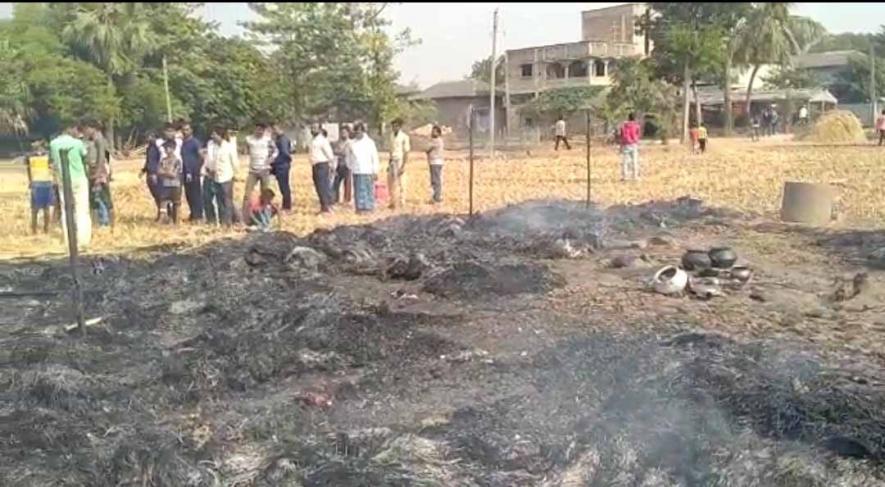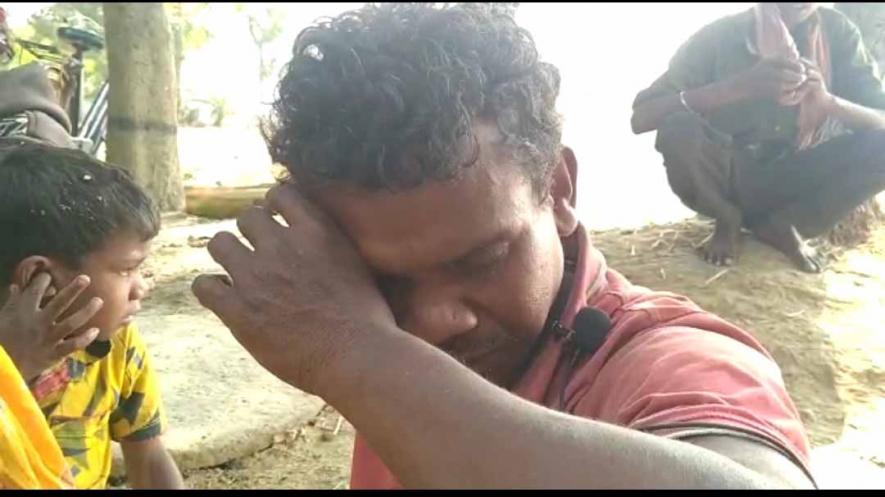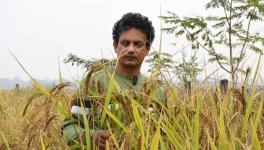West Bengal: 2 Sabar Infants 'Burn' to Death at Home While Migrant Parents Were Out Working

Kolkata: In a ghastly incident in the Indus area of Bankura district, two Sabar adivasi community infants, Purnima Shabar (1) and Sushmita Shabar (3), reportedly burned to death when both of their parents were out for work.
The tribal (denotified tribe) couple, Dhananjay and his wife, are migrant agricultural labourers. Both the parents had come to Indus in search of work. They have been forced to migrate from their home in Belpahari as the family struggled to get two square meals a day. They had found work in the Narra village in Bankura as seasonal labourers in the paddy-cutting season and were staying in tents made of polythene sheets.
According to reports, the couple cooked a meal on Wednesday and left their daughters sleeping on the floor with a mosquito net around them along with their five-year-old son. Soon after they left for work, a Sabar youth, Jagannath, saw flames coming from the shanty. He said that he managed to rescue the son, but the daughters were reportedly burnt alive.
The deputy superintendent of police of Bishnupur, Kutubuddin Khan, rushed to the Narra village and sent the bodies for post-mortem. He also said that the police are still investigating to trace the cause of the fire in the shanty.
Those who had come to work from the Sabartollas (small hamlets of Sabar community) of Belpahari informed the reporters that they don’t get any work in their home village. “In our area, we do not get 100 days of work; there are no provisions for drinking water and we are not in the good books of the panchayats”.

Stigmatised, ostracised, and treated as habitual offenders, youths represent the plight of the Sabars, a Scheduled tribe which continues to bear the criminal tag of colonial times in West Bengal.
Featured in the now-scrapped Criminal Tribes Act, 1871, the denotified Sabar tribe bears the stigma in West Bengal, where they have still not been identified under the Particularly Vulnerable Tribal Groups (PVTGs), unlike in neighbouring Orissa and Bihar.
The Sabartollas are typically outside the villages as they are considered pariahs. Years of Left rule had changed their pathetic condition to an extent, but the mindset of society remains unaltered.
Without Aadhaar cards, the Sabars are not entitled to the state and central government schemes – Swasthya Sathi government health cards or unemployment allowances. They do not get 100 days of work and remain outside the ambit of the banking system. Treated as pariahs, they stay in the forestlands and on the outskirts of the villages. So far, only 11 Sabars have got Pattas under the Forest Rights Act, 2006. The Sabars neither have cultivable land nor land to build houses on. In this context, they are often forced to migrate and look for work.
Get the latest reports & analysis with people's perspective on Protests, movements & deep analytical videos, discussions of the current affairs in your Telegram app. Subscribe to NewsClick's Telegram channel & get Real-Time updates on stories, as they get published on our website.























